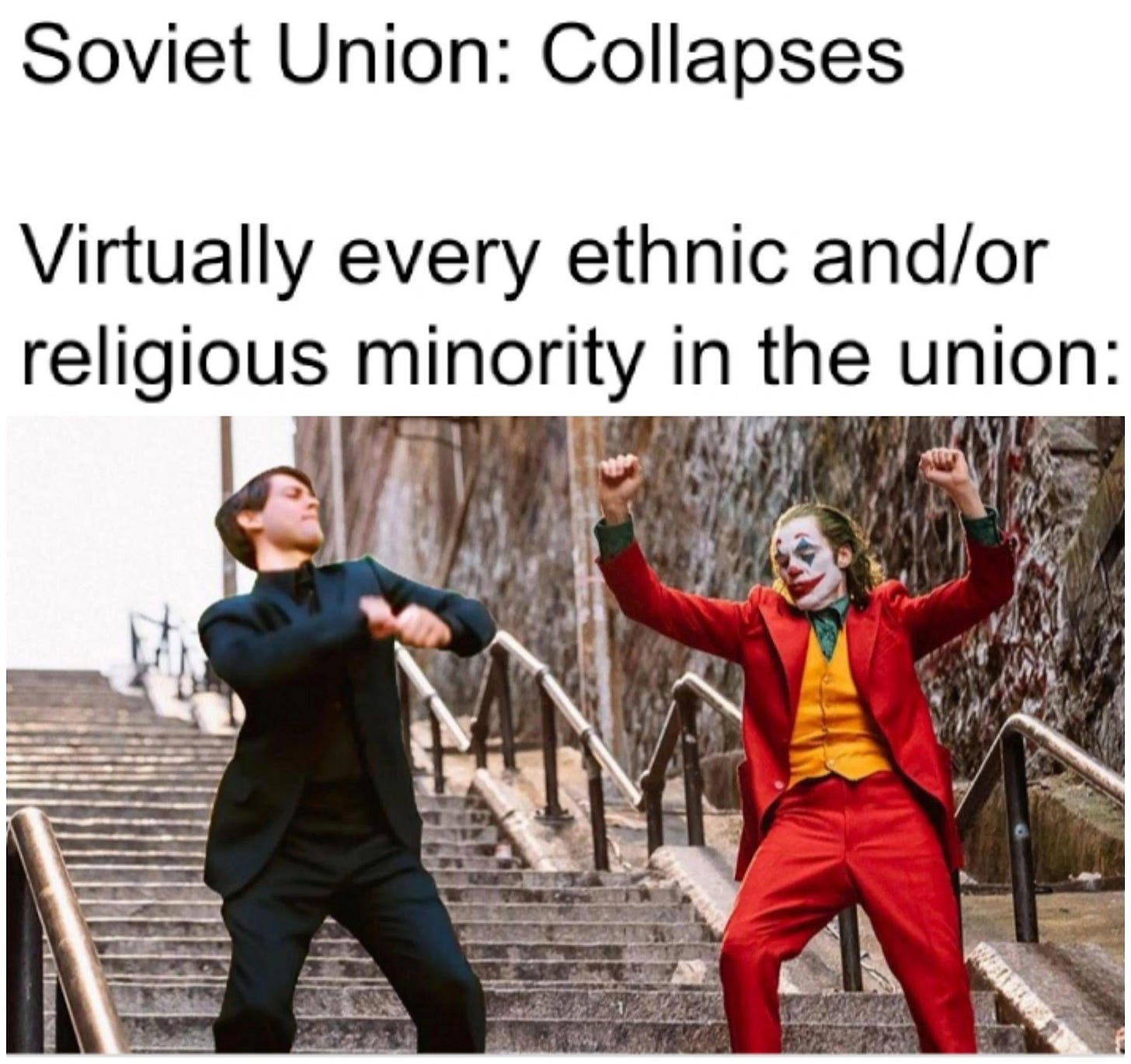Friends, you are reading Monday Map on The Busyminds Project. In this essay every Monday, I bring you some of my latest curious findings, theoretical explanations, and a meme. I would like to echo this: The Busyminds Project is committed to useless knowledge — the kind of knowledge with no immediate use besides sheer intellectual satisfaction. I bring you the answers to my personal inquiries. So, enjoy.
Today’s essay will be as short and as precise as possible. I will share the problem of scale in human society, and the reason why arguing words and their meanings is inevitable.
The Problem of Scale in human society
What works for a group of 5 people is not guaranteed to work for a group of 50 people. That’s the problem of scale in human society.
In specific cases of ethics, morality, and relationships, the bond between 5 people weakens as the group gets more members. Essentially, the smaller the better. If you extend this quality to nations you will see the problem. The scale problem explains my skepticism about globalism.
As the population increases, good qualities diminish as the bad qualities multiply.
A quick browse of totalitarian states shows a larger degree of individualism – appropriately called atomization – in the lives of the citizens. True individualism is absent because everyone’s identity is absorbed into the state, with no one having an identity in himself. They are atomized in the sense that neighbors trust each other less, and they are ever willing to turn each other in at any given time.
To understand the scale problem in a single statement, read this quote by Nassim Taleb:
Things don’t “scale” and generalize… A country is not a large city, a city is not a large family, and, sorry, the world is not a large village.
Words Have Meanings
My favorite quote from George Orwell’s Politics and English Language is this:
The great enemy of clear language is insincerity
Liars communicate. But to convey their falsehood well enough to hide their true intent, they use obscure language. They use vague, general words in clever ways to do the job.
The example Orwell used in his essay is particularly striking because of its political context. He wrote:
In our time, political speech and writing are largely the defense of the indefensible… thus political language has to consist largely of euphemism, question-begging and sheer cloudy vagueness. Defenseless villages are bombarded from the air, the inhabitants driven out into the countryside, the cattle machine-gunned, the huts set on fire with incendiary bullets: this is called pacification. Millions of peasants are robbed of their farms and sent trudging along the roads with no more than they can carry: this is called transfer of population or rectification of frontiers. People are imprisoned for years without trial, or shot in the back of the neck, or sent to die of scurvy in Arctic lumber camps: this is called elimination of unreliable elements. Such phraseology is needed if one wants to name things without calling up mental pictures of them. (emphasis mine).
His example paints a perfect picture. You can't argue with innocent-looking words like “pacification” or dispute “elimination of unreliable elements" unless you love unreliable elements. However, if you see the true, horrid images veiled within these harmless words, you will be forced to rethink.
Let's try something simple in case the scenario above is too complicated for you to follow.
Some groups commit violent (mostly peaceful but fiery protests), and reprehensible crimes while calling themselves the good guys. Their defense goes like this:
“Our name is ‘The Good Guys.’ As the good guys, we always do good things. Even when we do bad things, they are good because we do them for good reasons. Hence if you are against the bad things we do as good guys, you are a bad guy. Only a bad guy will oppose us no matter how terrible we are. You are either with us or against us.”
I can think of a few examples. Black Lives Matter tends to use terrible methods in advancing its cause. But you cannot possibly disagree with them because if you do, you are saying that black lives don’t matter. Antifascists too. With the Antifascists, you cannot oppose them; that will make you a fascist. Or feminism, as radical as it gets, you cannot possibly disagree with their methods. You will be told in the words of Ani DiFranco that “either you are a feminist or a misogynist. There is no box marked 'other'” To say you are against feminism to them is to say that you hate women.
Those are just a few examples of the way words are used to obscure intent and rationalize terrible actions. But here is one more: democracy.
Many nations are democratic in name and autocratic in practice. How can you oppose them? If you oppose them then you are an enemy of democracy. Or even within countries, when opposing parties don’t get their way they accuse the opposition of threatening democracy. What they really mean is that the other is obstructing their program.
I will close with this decisive statement: Never fall for the framing; instead, watch what is being framed. Vale.
Here is your picture:
Have a great week.




